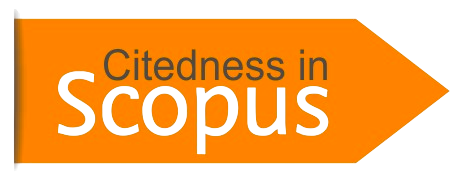UTILIZATION OF ARTIFICAL INTELLIGENCE IN MARKETING CATALOG INNOVATION OF JAMBI SOUVE PRODUCTS
DOI:
https://doi.org/10.30631/sdgs.v3i2.2094Keywords:
Artificial Intelligence (AI), Marketing Innovation, Catalog, Jambi souvenir productsAbstract
In the 5.0 era, the focus is on human mindset based on technology, one of which is utilizing marketing innovation to increase economic growth in Indonesia. Development of a computer system that is capable of being run by humans in completing life tasks at the financial level of the economy, namely being able to apply an Artificial Intelligence (AI) system which is unique because it is able to work according to certain computer system programming algorithms, programming algorithms are an artificial intelligence framework for processing various types of data . AI has many benefits in various aspects of life, especially in the economic aspect in Indonesia. Economic growth in Indonesia has experienced a decline due to Covid-19, one of which is Jambi Province which has experienced a decline in economic growth. Based on data obtained from the Bank Indonesia Representative for Jambi Province, it shows that economic growth in Jambi City in 2019 was 4.35%, in 2020 it changed to -0.51% from 11,000 MSMEs during the Covid-19 period which resulted in bankruptcy. In 2021, 8,300 MSMEs were registered in Jambi City, amounting to 3.69%. In 2022 it will increase to 5.13% with the number of MSMEs now reaching more than 60,000, with an average of dominant businesses in the culinary food and beverage sector. With the increase in MSME players every year, marketing competitiveness is getting stronger. This requires MSME players to be able to adapt to keep up with the times, while consumer behavior currently prefers to shop online considering the time and affordability of cheap prices compared to shopping in person. The research method used is a qualitative descriptive approach. Data collection techniques were carried out through observation, interviews and news on the WEB. This research uses the Manual Data Analysis Procedure (MDAP) analysis technique to analyze transcription data from interviews that have been obtained directly from the field by informants who follow the purposive sampling technique. These findings use the theory of utilizing AI and business marketing innovations which make it easier for producers and consumers to obtain the right profits.
References
Aurora Lubis, T., & Studi Manajemen Fakultas Ekonomi dan Bisnis Univ Jambi, P. (2016). Pemanfaatan Teknologi Informasi pada Usaha Mikro Kecil dan Menengah di Kota Jambi. Jurnal Perspektif Pembiayaan Dan Pembangunan Daerah, 3(3), 2338–4603.
Christanti M, V. (2021). Penggunaan Sosial Media Dalam Meningkatkan Usaha Umkm Jambi Di Tengah Pandemi. Prosiding SENAPENMAS, 119. https://doi.org/10.24912/psenapenmas.v0i0.14979
Dahiri. (2020). Analisis Penguatan Umkm Dan Dampaknya Bagi Perekonomian Nasional Sebagai Upaya Mengatasi Dampak Covid-19. 5(1), 1–14.
Dewey Petra. (2018). Jiunkpe-Is-S1-2018-31413180-43912-Inovasi-Chapter2. Universitas Kristn Petra, 6–19. https://dewey.petra.ac.id/repository/jiunkpe/jiunkpe/s1/mbis/2018/jiunkpe-is-s1-2018-31413180-43912-inovasi-chapter2.pdf
Dwiputra, R., & Barus, L. S. (2022). Peran Usaha Mikro, Kecil dan Menengah (UMKM) dalam Pemulihan Ekonomi Masyarakat Pasca Pandemi Covid-19 di Kawasan Kampung Tangguh Pluit-Penjaringan. Jurnal Pembangunan Wilayah Dan Kota, 18(1), 26–34. https://doi.org/10.14710/pwk.v18i1.35033
Fidela, A., Pratama, A., & Nursyamsiah, T. (2020). Pengembangan Usaha Mikro Kecil dan Menengah (UMKM) dengan Program Pemasaran Desa Jambu Raya di Desa Jambu , Kabupaten Sumedang. Jurnal Pusat Inovasi Masyarakat, 2(3), 493–498.
Lubis, T. A., & Junaidi, J. (2016). Pemanfaatan Teknologi Informasi pada Usaha Mikro Kecil dan Menengah di Kota Jambi. Jurnal Perspektif Pembiayaan Dan Pembangunan Daerah, 3(3), 163–174. https://doi.org/10.22437/ppd.v3i3.3535
Margono, H., & Chaniago, M. J. R. (1984). Sejarah Sosial Jambi. 1–140.
Rohman, R. N. (2019). Analisis Pengaruh Perkembangan Usaha Mikro Kecil Menengah Terhadap Pertumbuhan Ekonomi Di Indonesia Tahun 1997-2017. Universitas Muhammadiyah Sukarta, 4(2), 11–15. http://eprints.ums.ac.id/id/eprint/76268
Srijani, K. N. (2020). Peran UMKM (Usaha Mikro Kecil Menengah) Dalam Meningkatkan Kesejahteraan Masyarakat. EQUILIBRIUM : Jurnal Ilmiah Ekonomi Dan Pembelajarannya, 8(2), 191. https://doi.org/10.25273/equilibrium.v8i2.7118
Suparyanto dan Rosad. (2020). Peran Teknologi Dalam Penggunaan Media Sosial Dan Dampaknya Terhadap Umkm. Suparyanto Dan Rosad, 5(3), 248–253.
Yuliartini, N. P. R., & Pramita, K. D. (2022). Jurnal komunikasi hukum. Jurnal Komunikasi Hukum,Volume 7 Nomor 1 Februari 2021, 8(1), 469–480. https://ejournal.undiksha.ac.id/index.php/jkh/issue/view/863
WEBSITE :
https://jambi.bps.go.id/ diakses pada 28 Agustus 2023
https://jambi.antaranews.com/berita/461822/bi-jambi-dorong-umkm-gunakan-digitalisasi-pemasaran-dan-pembayaran diakses pada 28 Agustus 2023
https://www.jambione.com/megapolitan/1362682234/2000-UMKM-Kota-Jambi-Telah-Masuk-Digitalisasi diakses pada 28 Agustus 2023
https://jambi.tribunnews.com/2022/11/25/umkm-jambi-makin-berkembang-dengan-manfaatkan-teknologi-digital diakses pada 28 Agustus 2023
https://www.jagoanhosting.com/blog/tools-ai-marketing-bisnis/ diakses pada 28 Agustus 2023
https://www.kompas.com/tren/read/2023/03/27/164012365/pemanfaatan-artificial-intelligence-untuk-marketing-produk-umkm?page=all diakses pada 28 Agustus 2023














